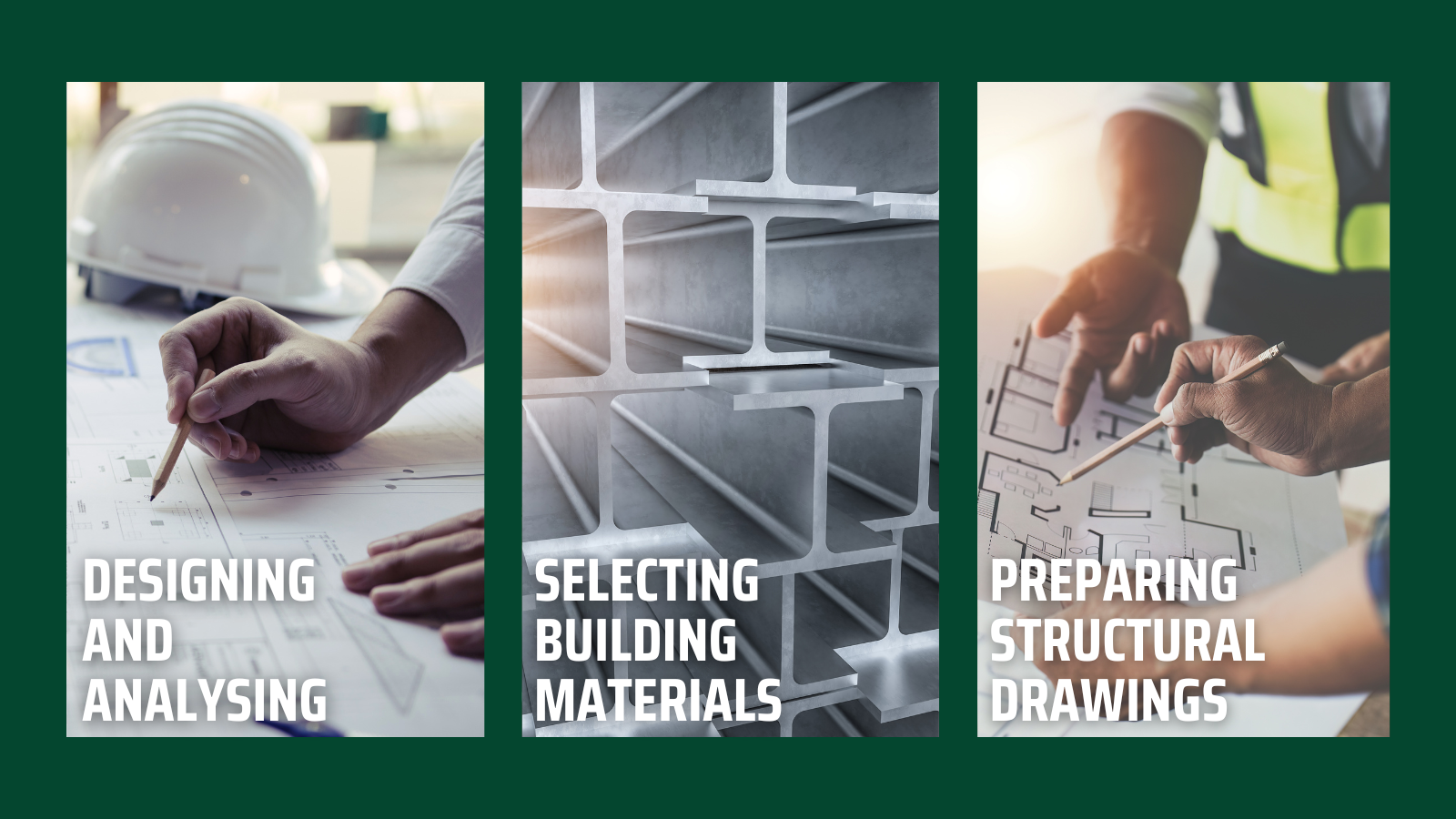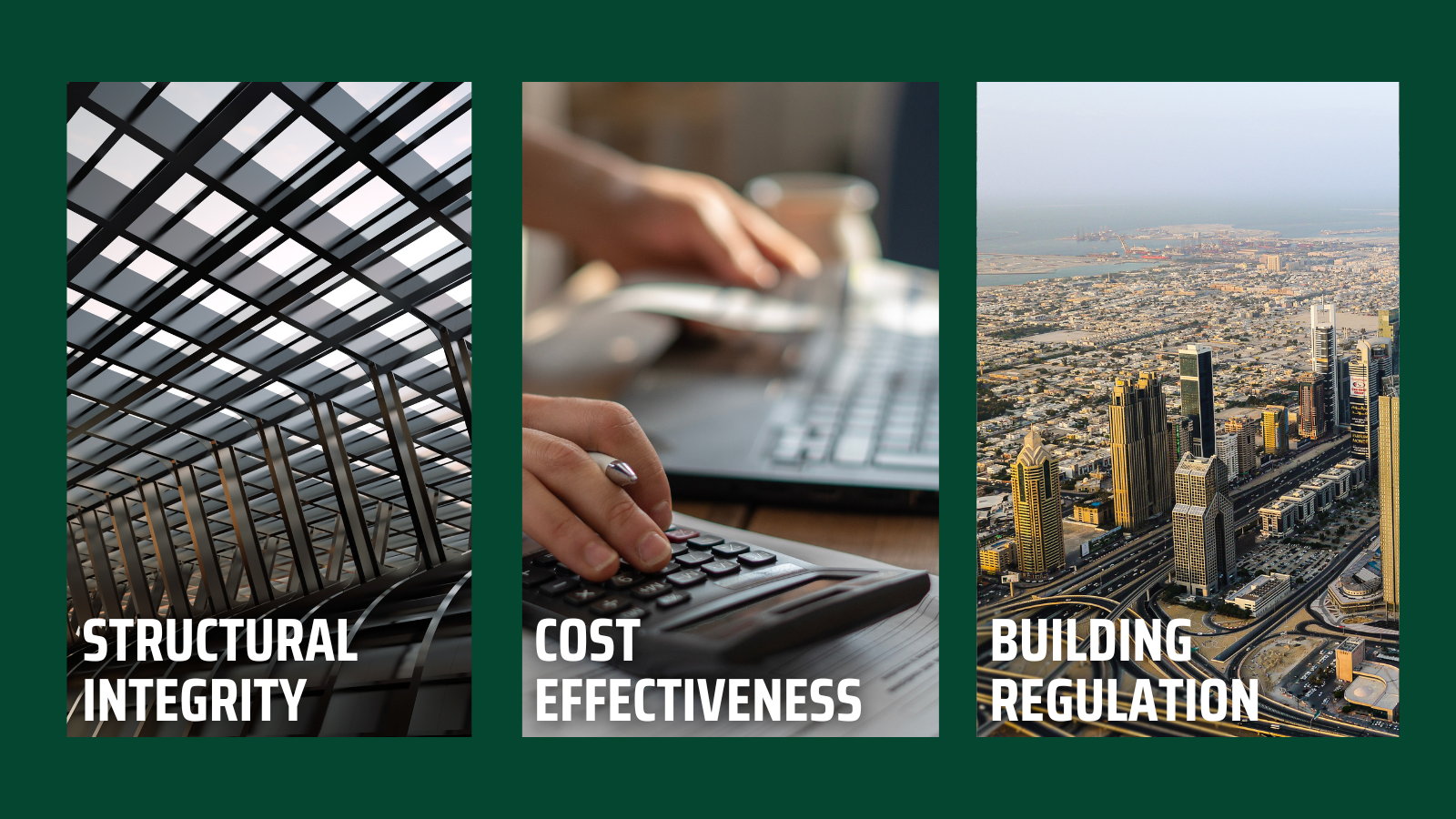The construction industry has evolved rapidly over the years, with innovations and technological advancements reshaping the way buildings and infrastructure are designed and constructed. Structural engineers play a pivotal role in ensuring that these modern structures are not only aesthetically pleasing but also safe, durable, and functional. As urbanisation accelerates across major cities worldwide, the demand for advanced infrastructure continues to rise, making the role of structural engineers more crucial than ever before.
In regions like the UAE, where construction is one of the most significant industries, structural engineers are at the heart of every major project, from skyscrapers to residential complexes and industrial facilities. Their expertise is invaluable in ensuring that structures are built to withstand various environmental challenges and comply with local regulations.
Who is a Structural Engineer?
A structural engineer is a highly specialised professional responsible for the design, analysis, and oversight of the structural components of a building or infrastructure project. Working closely with architects, contractors, and project managers, they ensure that the project is structurally sound and capable of withstanding both internal and external forces, such as gravity, wind, and seismic activity.
Structural engineers are involved in every phase of a project, from the initial concept and design to the construction and maintenance stages. By 2021, the construction industry in the UAE employed around 1.2 million workers, with structural engineers being a key part of this workforce.

Types of Structural Engineers
There are two main types of structural engineers, each playing a distinct role in the construction process:
- Structural Design Engineers: These engineers are responsible for designing and analysing structural systems. They produce detailed plans and technical drawings that outline how a structure will be built, noting factors like load-bearing capacity and the intrinsic and external properties of building materials.
- Civil Structural Engineers: These engineers are typically involved in managing and supervising the construction process. They ensure that all structural work is completed according to the design plans and adheres to construction standards and safety regulations. They also review and approve the materials used by subcontractors and ensure the documentation is in order.
What are the Key Roles and Responsibilities of Structural Engineers?
Structural engineers are involved in several critical tasks throughout the lifecycle of a construction project. Their primary responsibilities include:
Designing and Analysing Structural Systems
Structural engineers design structures that can withstand gravity loads (the weight of the building), lateral loads (such as wind and seismic forces), and environmental loads (such as temperature fluctuations). They use advanced software and tools to conduct structural analyses and ensure that the building’s framework can handle these stresses without failure.
Selecting Building Materials
Structural engineers are responsible for selecting the most suitable building materials for a project. They consider factors such as local availability, sustainability, cost-efficiency, and the material's ability to resist environmental conditions. For example, buildings in coastal areas require materials resistant to corrosion and rust caused by saltwater.
Preparing Structural Drawings and Specifications
Structural engineers create detailed drawings and specifications that provide instructions on how the structure should be built. These drawings are used by contractors and builders to ensure that the construction process follows the engineer’s design.

Collaboration with Other Professionals
Structural engineers work closely with architects, civil engineers, and project managers to ensure that the structural design aligns with the overall vision of the project. They ensure that the building’s aesthetic and functional aspects are not compromised by its structural requirements.
Site Inspections and Supervision
Once construction begins, structural engineers visit the site regularly to inspect the progress and ensure that the work aligns with the approved design. They check for any deviations from the plans and specifications and address any structural issues that arise during the construction process.
Assessing Existing Structures
Structural engineers are also responsible for evaluating existing buildings to determine whether they are safe and structurally sound. This often involves inspecting the building for signs of damage, such as cracks or foundation settling, and recommending repairs or reinforcements as needed.
How Do you Become a Structural Engineer?
The qualifications required to become a structural engineer vary by region, but a bachelor’s degree in civil or structural engineering is generally the first step. In the UAE, aspiring structural engineers must obtain a degree from an accredited institution and register with the Society of Engineers – UAE. Several universities in the region offer strong programs in structural engineering, including the American University of Sharjah, the United Arab Emirates University, and Khalifa University.
Beyond formal education, structural engineers must pursue continuous professional development and acquire professional certifications to advance in their careers. In many regions, obtaining a professional engineering license is a requirement to work on major construction projects.
What is the Role of a Structural Engineering Consultant for Project Success?
Structural engineering consultants are invaluable to the construction process, offering expert advice on the design and construction of safe and resilient buildings. Their primary role is to ensure that the load-bearing structures of a building can withstand the environmental conditions unique to the location.
For instance, in coastal regions, structural consultants consider factors such as corrosion caused by saltwater and the effects of high humidity. In earthquake-prone areas, they focus on designing structures that can absorb and dissipate seismic forces, minimising the risk of collapse during an earthquake. By addressing these location-specific challenges, structural consultants help create buildings that are resilient and capable of lasting for upcoming generations.
Additionally, structural consultants are experts in incorporating the latest advancements in materials science and construction technology into their designs. They use innovative materials, such as carbon fibre composites, and advanced methods, like Building Information Modelling (BIM), to enhance the safety, sustainability, and efficiency of modern buildings.
What are the Benefits of Hiring Structural Engineers in Construction?
The role of a structural engineer extends far beyond designing buildings. Their expertise offers several benefits throughout the construction process, including:
- Ensuring Safety and Structural Integrity: Structural engineers ensure that buildings and infrastructure can withstand various loads and external forces, such as wind, earthquakes, and the weight of the structure itself. This not only guarantees the safety of the occupants but also reduces the risk of structural failure, which could lead to catastrophic consequences.
- Improving Efficiency and Cost-Effectiveness: By optimising structural designs and carefully selecting materials, structural engineers help minimise construction costs. They are skilled at identifying potential issues before they become costly problems, allowing projects to proceed smoothly and on budget.
- Ensuring Compliance with Building Codes and Regulations: Structural engineers are well-versed in local building codes and regulations. They ensure that all structures meet the necessary safety and performance standards, preventing legal issues and helping avoid costly fines or delays.

Structural Engineering Services: Delivering Value Beyond Design
While the design phase is a critical component of a structural engineer's job, their responsibilities don’t end there. Once construction begins, structural engineers are tasked with ensuring that the building process aligns with the approved design plans. They work very closely with contractors and builders to resolve any issues that arise on-site and ensure that all structural work is completed to the highest standards.
In regions where construction safety regulations are tightened, such as the UAE, structural engineers play a critical role in ensuring compliance. Their knowledge of local building codes and standards helps prevent costly errors, delays, and safety violations. Their involvement throughout the project also ensures effective use of materials, adherence to timelines, and overall project success.
The UAE enforces stringent safety regulations in the construction industry, with structural engineers playing a key role in ensuring compliance. For instance, Dubai Municipality has mandated that all structural designs and construction activities meet specific safety standards.
Conclusion
Structural engineers are essential to the success of modern construction projects. Their expertise ensures that buildings and infrastructure are designed and constructed to the highest safety and quality standards, while also considering local environmental challenges and regulatory requirements. By partnering with experienced structural consultants, construction projects are more likely to succeed in delivering safe, durable, and innovative structures that meet both functional and aesthetic goals.
About us
At Stonehaven, we provide comprehensive structural engineering support services designed to enhance the success of your construction projects. Check out our work to discover how we’ve produced diverse results for all our clients.
As one of the leading structural consultants in the UAE, we offer innovative and reliable engineering solutions that ensure the safety and durability of your structures. From concept design to on-site support, our team of experts guarantees sound structural solutions that drive your project's success.
Build with confidence today. Contact us to learn more about our structural engineering services and how we can help you achieve your project goals.








